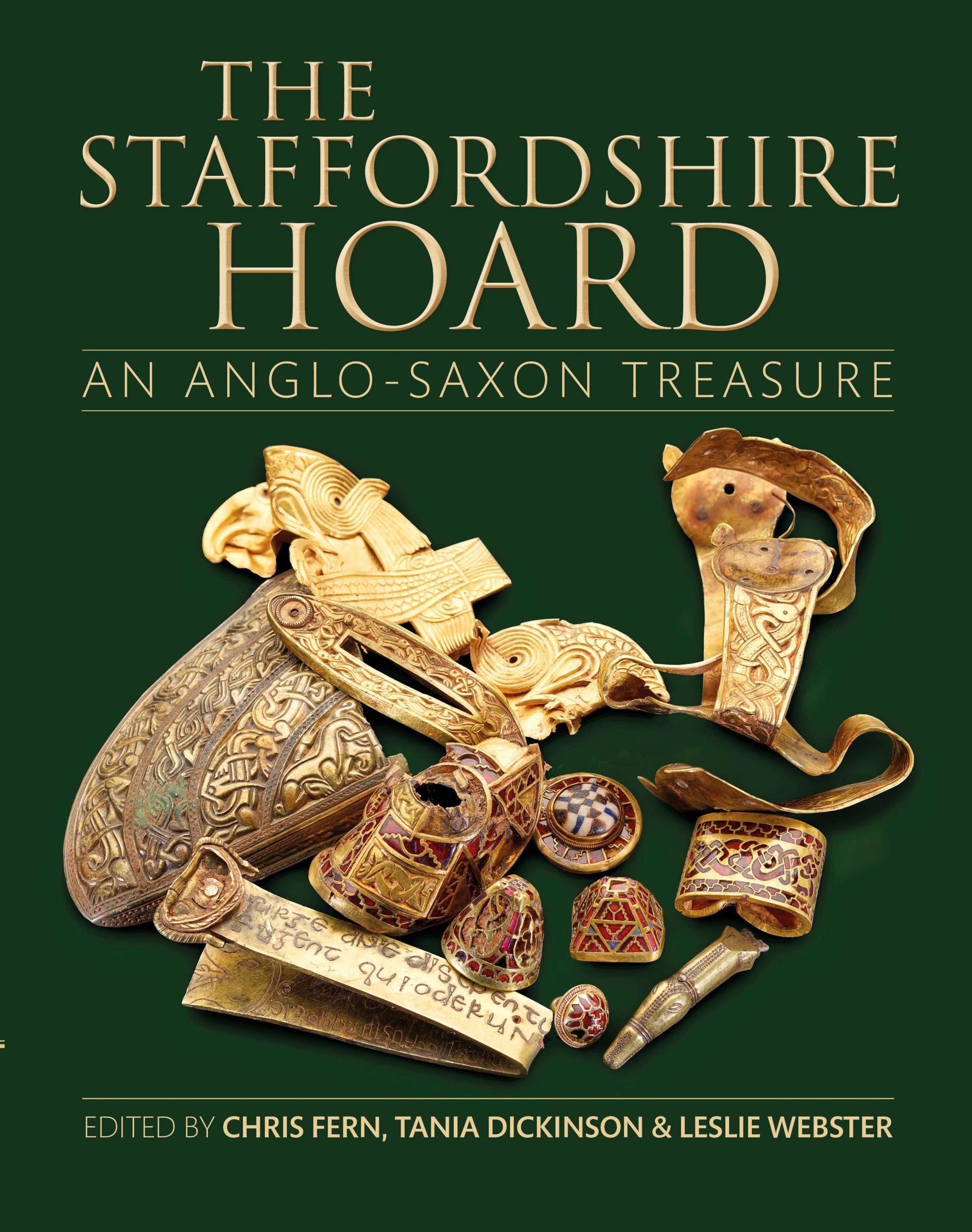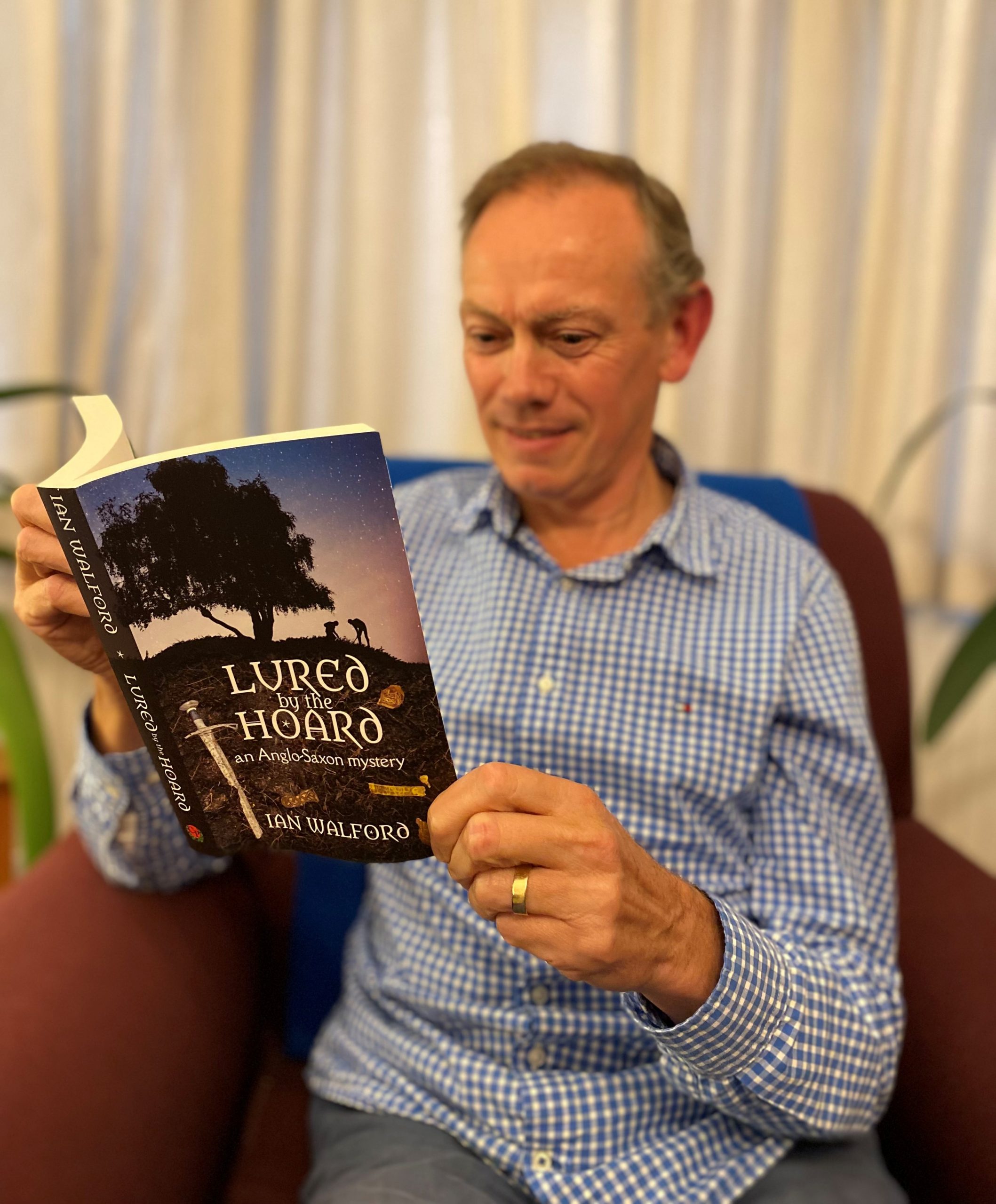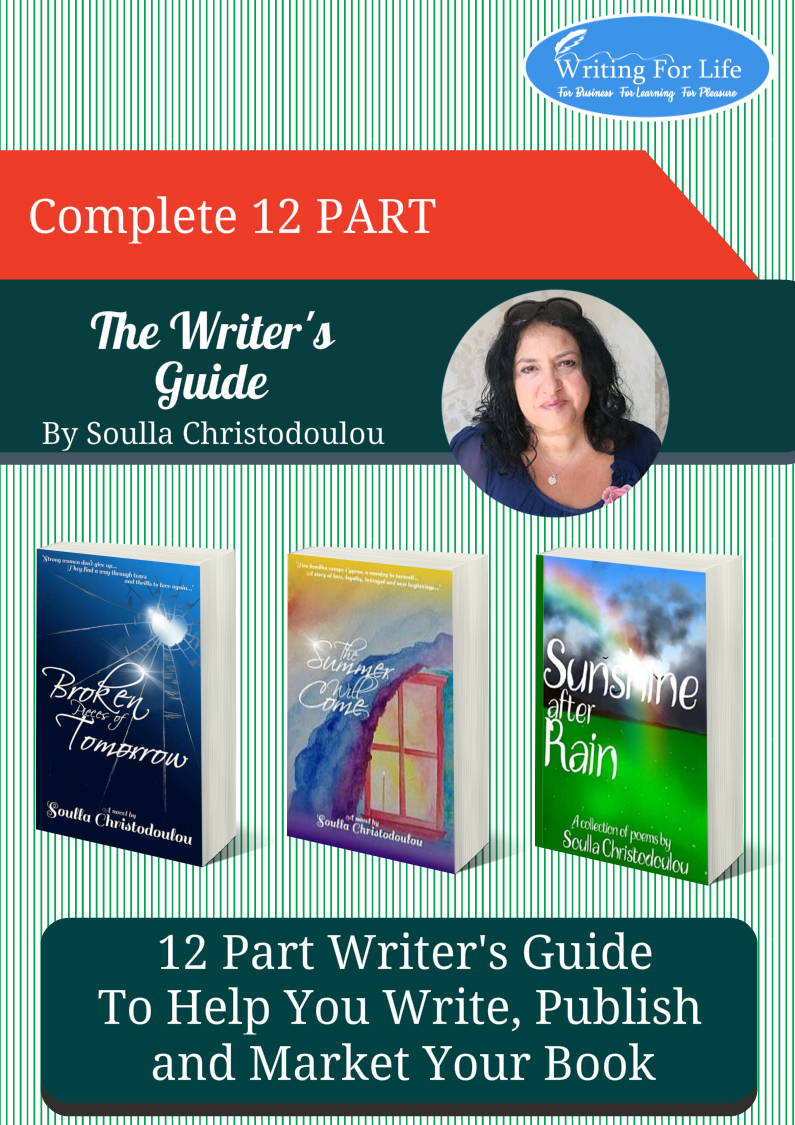Hello and welcome to this week’s blog post — A Cup of Conversation with a fellow author published by The Conrad Press.
Ian Walford is not someone I’ve met but I have had a lovely video call with him and he is so easy to talk to. His passion for his writing comes across so well and to see an author’s face light up as they talk about their writing journey and their book is something I will never tire of.
Writing is a romanticised art but there are many hurdles to overcome on the road to publication and Ian has been tremendously patient in waiting for this moment.
The moment where his novel, ‘Lured by the Hoard – An Anglo-Saxon Mystery’ is published and out in the world is finally here, so huge congratulations to him. Definitely worth a celebration!
I hope you enjoy his interview!


1. What prompted you to start writing creatively with a view to writing a book?
I enjoyed writing stories from as early as I can remember. In fact, I decided at primary school I wanted to be a writer ‘when I grew up’!
Ideas for novels flitted in and out of my mind over the years, but none came to anything amid the demands of family life and my actual ‘grown up’ career – until September 2018.
2.How did you first become interested in writing stories set in the ‘Dark Ages’?
I can remember very precisely: when I visited an exhibition in Birmingham Museum about the Staffordshire Hoard in September 2018.
The Hoard’s a remarkable collection of treasure which was discovered in 2009 by a metal detectorist in a non-descript field near Lichfield – just a few miles from where I grew up in the West Midlands. It had been deposited there, probably around 650AD, but no one knows why or by whom.
I guess the historian in me sparked into life that day. I’d studied history to Masters level at Leeds University, and from 2012-2015 was Chief Executive of Historic Scotland. But I knew very little about the so-called Dark Ages in the British Isles between the departure of the Romans in 410AD and the Norman conquest in 1066.
I read everything about the period I could lay my hands on. I learned that the term ‘Dark Ages’ is now something of a misnomer. The first half of the seventh century in particular intrigued me. The daily lives of folk then were incomparably different to ours. And yet, amazingly, the narratives and events of the time sounded remarkably similar to our own recent global history!
I wondered how ordinary people would have grappled with the multiple challenges they faced between 600-650. At the most basic level, would they have reacted any differently to the way we react to the events which shape our lives?
The idea of a novel about fictional people, based around a fictional treasure hoard, but set against a very real historical backdrop, grew and developed.
And here it is!
3.Which author has had the biggest influence on your writing and how?
It’s very difficult to pin it down to one!
The novels by the three Bronte sisters have all had a big influence on me. I so admire the way they created vivid characters and portrayed so many different atmospheres using such rich and precise vocabulary. Wuthering Heights is still my favourite novel – it’s such a gripping, captivating plot.
Among more modern authors I have learned a great deal from Louis de Bernieres’ `Captain Corelli’s Mandolin’ and Khaled Hosseini’s ‘Kiterunner’ and ‘A Thousand Splendid Suns’. Both have been able to create credible fictional characters and evoke compelling, powerful emotions against a backdrop of real and profoundly shocking historical events.
4.Who is your favourite character in ‘Lured by the Hoard – An Anglo-Saxon Mystery’ and why will readers like him/her?
I’m most pleased with Aelfred, the lead character. I don’t think he’d necessarily be my best friend in real life, but I like the way we can see his personality develop right from infancy throughout the story.
I hope readers will see the positive sides of Aelfred, understand his internal struggles, and come to respect his honesty and his courage even if they don’t always agree with his motives or his actions.
5. Please share a favourite excerpt from your newly released book and tell us why you chose this particular snippet.
It has to be the first few paragraphs. The opening chapter is literally the fulcrum of the novel. It introduces the two main characters, draws you straight into the seventh century, launches some key themes. I hope it grabs readers immediately.
I was tense. My palms were clammy despite the night-time cool of the forest.
I had thought about and planned this moment for weeks. It had arrived. Why was I hesitating, questioning?
I fingered the tiny silver figure of Woden hanging round my neck. Surely our great god of war was with me? Surely Grandfather Eadwell would have approved if he were still alive?
‘Come on, Aelfred, let’s get on with it, we haven’t got all night!’ Cadmon’s voice cut through my thoughts. He pulled two trowels from his cloak and handed one to me.
‘You’re the slave – you dig, I watch,’ I retorted. Cadmon’s grimace was clear in the light of the near full moon filtering through the trees. He feigned a punch, I caught his fist, we laughed and broke apart. He knew very well my command was not serious, that we were in this together as equals.
We started scooping earth, kneeling together in the square of ground I had marked out.
The pile of displaced dirt grew steadily.
I fretted inwardly, anxiety nibbling at my consciousness.
‘I can feel sacking!’ Cadmon whispered, a measure of his excitement rather than fear of being overheard.
A surge of relief engulfed me: we were in the right place; it was still there.
‘Easy does it,’ I said. ‘Let’s release the sack and take a look.’
The sack was nondescript, animal skin stitched together, tied with a simple cord; but it was heavy enough, and it clinked satisfyingly.
I untied the cord, my hands shaking slightly. Cadmon watched intently.
The contents glittered in the moonlight as I pulled open the sack.
6.What has your experience of writing the book taught you about yourself and your writing?
I guess I’ve thought much more about how I react emotionally to the events that shape our lives as I’ve imagined how my characters would have coped with the enormous changes which transformed the British Isles 1400 years ago.
As a historian I was trained to analyse events, trends, and forces at a macro level – but I’d never thought so much about the micro effect on people at all levels of society.
I’ve learned afresh that history’s as much about feelings as about facts.
7.Who would you most like to meet from the ‘Dark Ages’ and what two things would you ask them?
Most definitely King Oswald who became king of Northumbria in 634 – right in the middle of my novel – after almost 20 years of exile on the island of Iona, and later became a saint.
There are many things I’d love to ask him! At the top of the list would be questions about two places I adore and with which he is intimately associated: the islands of Lindisfarne and Iona.
I’d ask him to describe his exile in Iona: to tell me who influenced him, what he felt, how he planned his return. And I’d want to know how he overcame the challenges in founding a new community of Celtic monks on Lindisfarne in the face of inevitable scepticism and opposition.
8.What has most surprised you about the writing community?
I’ve been surprised personally – and heartened – by the sense of togetherness in the writing community given that to some extent all authors are competing with each other for book lovers’ attention.
The Conrad Press exemplifies the spirit of mutual support and encouragement: tips are passed on, achievements are celebrated, newcomers welcomed. It’s good to be part of it.
9.What do you find most frustrating about the writing/publishing industry?
Vanity publishers who prey on eager new writers. It’s frustrating to read about so many cases of companies taking a great deal of money from folk on a promise to publish their book, but then either taking a very long time to do a poor job or sometimes never even publishing at all. I wonder whether tighter regulation of some sort might be required.
10. What are you currently reading?
I’ve just finished the remarkable trilogy by the late Patrick Leigh Fermor which describes his solo journey on foot as an 18-year-old in the 1930s from the Hook of Holland to Constantinople.
‘A Time of Gifts’, `Between the Woods and the Water’, and ‘The Broken Road’ are a wonderful portrait of a continent and its peoples which were changed utterly and, in many respects, irrevocably just a few years later.
I was fascinated by his lucid explanations of the history of lands and nations, entranced by his descriptions of the landscapes, and often entertained by his pen pictures of the rich variety of people he met along the way.
They were a truly great read.
Thank you for joining us Ian and I wish you all the best as you promote your book! I certainly hope I get the opportunity to read it.
And to my weekly readers, I hope you’ll make Ian’s book your next read and link up with him via Facebook here.
Until next week, Happy Reading, Happy Writing, Happy You.
Big hug, Soulla xxx


